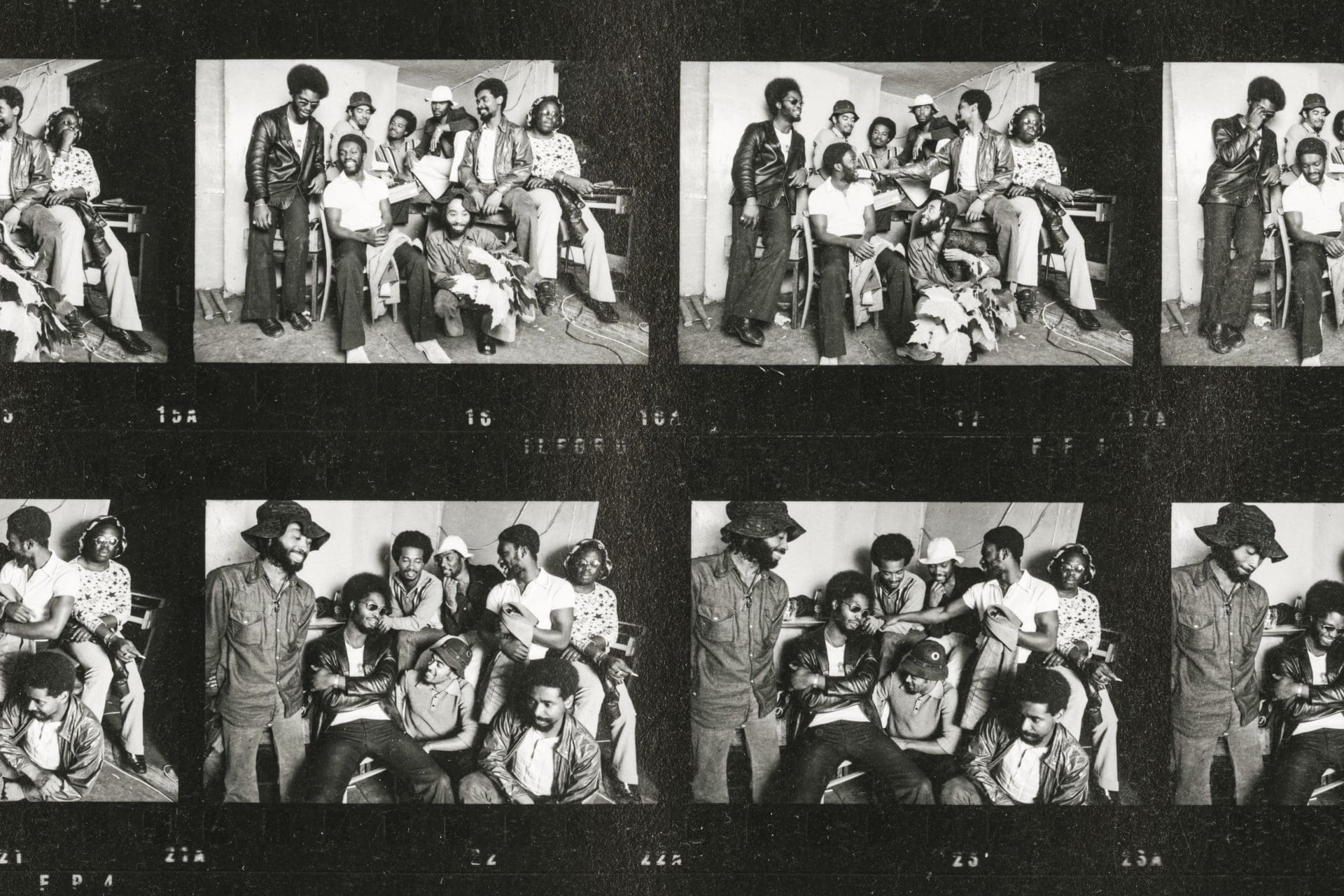
Lost in the ether and miraculously reborn, the journey of Caribbean-born, British rooted ensemble Cymande feels slightly magical in the world of music today. Fearless, funky, and wildly influential, first listens will have you feeling like you’ve stumbled upon treasure, wondering how you’d never heard of them before.
From 1971 to 1974, the group released three sequential records. Across them, a distinct ambience, and a unique blend of some of the world’s most popular genres, from jazz, soul, funk, and reggae, all the way to rock – ”a sound it feels like popular culture would have embraced”. With all founding members sharing West Indian backgrounds, the group was inextricably linked to two things; the inspiring musicality of the Caribbean, and the deep-rooted structural racism in Britain, something they had faced since childhood. The latter would see this talented troupe struggle to gain the recognition they deserved in the UK as Black British music continued to be blocked and denied the platform it needed to thrive. Soon enough, they disbanded.
The ‘temporary’ hiatus quickly became 40 years. But somewhere within that timeline, something miraculous started happening. Their sound was still being heard. And shared. One by one, a new keen ear would discover something special at a party or a rave, and wonder where it had come from, and underground DJs would revel in the reactions, whenever the needle dropped. Cymande was sparking a new life, an afterlife, their growing popularity completely unbeknownst to the artists themselves.
Almost 50 years later, Cymande has gone on to influence popular music far and wide, even playing a crucial role in the early generation of hip-hop as a genre. But still, their story remains relatively unknown, until now. In Getting It Back, from British director Tim Mackenzie-Smith, we go on a journey of revival, rebirth, and resilience, travelling through time to reveal how the band came around to earn its rightful recognition. Joyous testimonials from big-name superfans pattern and detail Cymande’s legacy, accounting all the ways in which they touched and impacted different corners of music around the world, and how the act of sharing and passing them onwards felt like a duty.
Tim, how and when did you first discover Cymande?
TMS: It was the early 90s. I was at University. There was this mixtape flying around that said “rare groove” on it. No tracklist. Loads of American funk. There were two songs on there that very quickly became my favourites, but I had no idea who they were, I didn’t even know what they were called. I just absolutely loved them.
About five years later, I was living in Streatham. A mate of mine moved in. A proper record collector. At one point he was playing something and I just shot up – “Oh my God! What is that?!”. It turned out one of those two songs was Bra by Cymande.
Apparently the band were from South London, just like me. I couldn’t believe it. We started to host loads of parties at our place, and we’d deliberately play Cymande and watch the room come alive. People would clock the samples straight away. It became our special language, this thing we’d share with each other and tell our friends about. That’s how it started.

Why bring this project to life now?
TMS: In 2017 I was working on a documentary with the BBC about Anthony Joshua and we wanted to open the film with Dove. We used it, and the band’s manager at the time started following me on social media. I was at a time in my career where I’d been doing a lot of sport documentaries, and they’re great. But of course, you’re telling a story that people already know. I was really keen to do something that spoke to me personally, and that I could go on a bit of a journey with. My producing partner Matt, who also loves the band, said “hey, how about Cymande?” and I said “actually, they’ve just followed me” and that was that. The seed was planted and just grew very quickly. I made contact with Steve and Patrick and we met that Summer and the ball got rolling.
Steve and Patrick, what was it like to see your story reflected back to you on screen?
SS: It was as informative for us as it probably was for you. First of all, we were not in the UK. At that time, we’d both moved to the Caribbean, and were practising law. So we were totally oblivious to what was happening with the music. After we came off the road in ‘75 we had dabblings with other musical groups, but from about the ‘80s onwards, the focus was law. We’d all moved to try and find “what’s next”. Through my children, I kind of got an inkling of what was going on. One of them taught me the word “sample”. A bit of our music with some other music. And that was that. The first song I heard doing that was The Fugees’ “The Score”. But even then, we had no idea of the scale of it until now. The research Tim has done is absolutely amazing.
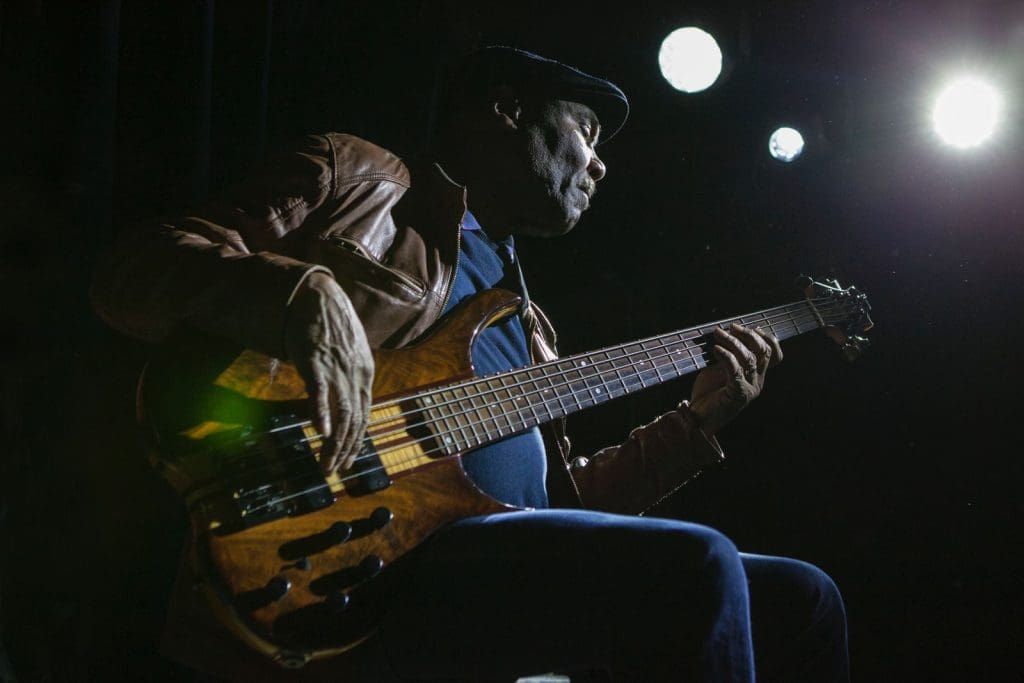
Some of my favourite moments come from your time in the States. The response felt like the potential you knew you had was finally being realised. What was the feeling in the room after your first few gigs overseas?
PP: We had the good fortune to tour with Al Green in 1972. It was amazing. You put it well – the ‘realisation’ that we had moved from South London to an area in which we were really appreciated. That really was quite something. The whole touring experience in America was exciting, and very inspiring. We played with top billing artists in places that were legendary to us. That’s crazy. I mean, we were the first British band to headline The Apollo in ‘73. It was amazing.
SS: There was definitely some apprehension on our part, too. We were struggling in the UK, in smaller venues, maybe 50 to 200 people. That kind of thing. And then we went to the States. Our first show was 30,000 people. Crazy! So, yes. Apprehension. Some of the guys in particular were quite nervous. But after we got out and settled in, it was just like. Oh yeah. This is good. This is cool. We just started to enjoy it.
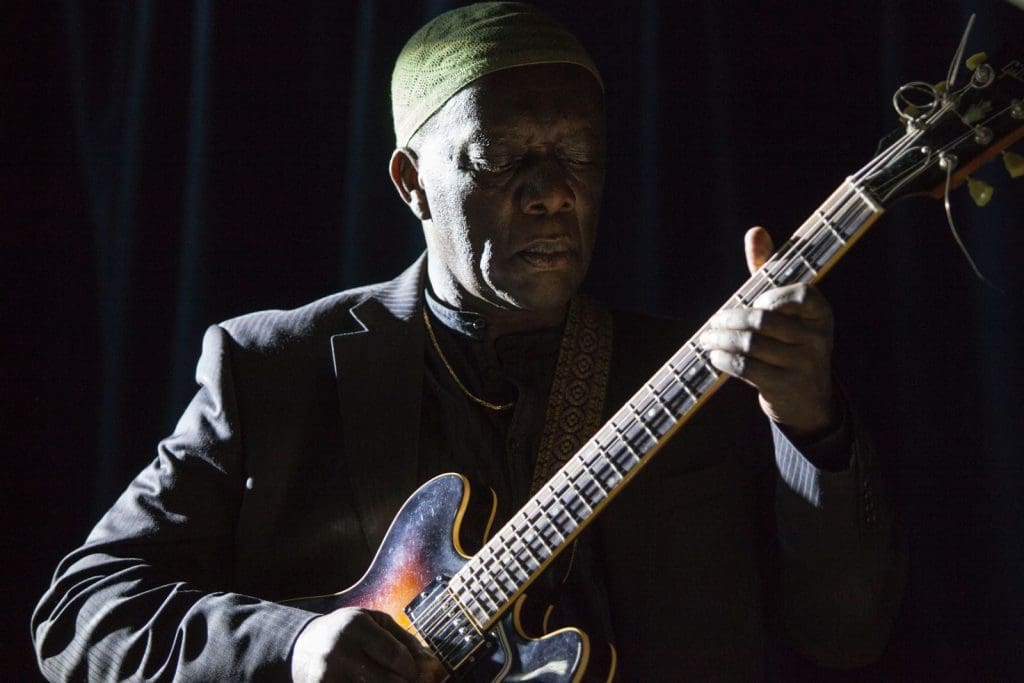
When people talk about your band, they often discuss this brilliant marriage of popular genres, from jazz and funk, to reggae and Rastafarian influences. Can you bring us into those early sessions, and how you brought these sounds together?
PP: Well, by the time we as a band got into the studio that was very much the sound we already had. That was the music. We’d been playing that music consistently for some time. That was the music we wanted to record. But it also reflected our musical experience and our musical love. We’d done all sorts of things, individually and together, because Steve and I had a band called Metre. It was a four piece jazz thing, before Cymande. We had worked with Ginger Johnson’s African drummers, too. That gave us a different sensibility, as well. And other players, they had bands and experiences and influences before. They had musical experience. Plus, our interests as artists in music and our influences came from a broad pool. So we blended that into Cymande in a way, quite naturally.
TMS: Sam (Kelly) in the early days was the one that was quite new to the music scene, and was teaching himself drums in his basement before finding himself playing with you guys. And he was like “right, I’m just going to try and work out what Steve’s doing’ or “what Patrick’s doing” and jump in with that.
PP: You know, we had a lot of ideas. Steve and I particularly had ideas of what we wanted to create, and Sam was so malleable and happy to run with it, because of that experience level. We had a real idea about originality, and about the particular types of rhythms that we wanted to build, and he loved it. You wouldn’t always get that with established artists, they might, you know, be resistant and seek the opportunity to bring their own thing into it, but Sam was great.
SS: Yeah, and I must say, we also didn’t get much resistance, actually, from the other members of the band, what we call the core members. People pretty much bought into the agenda that we had set at that time of what we were hoping to achieve sonically. There were no issues, no resistance, no egos. Everybody was working towards the same goal.
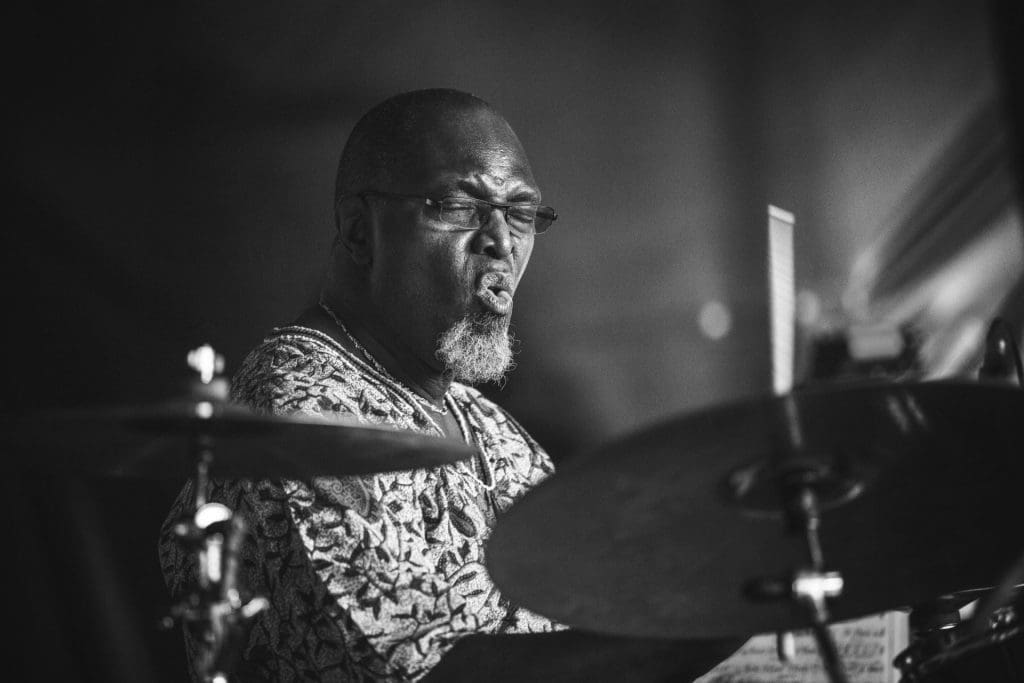
There sounds like a really clear vision of what you wanted to achieve with your sound from the very beginning.
PP: With the whole band. Even the artwork. That’s Steve.
No way.
SS: I used to dabble a bit, in art. I did the first two albums. Sketching. Brushstrokes. The third album, I was going to do but we were so busy touring in the states. You might notice that slight difference. Of course, you can always see in the first two albums that the subject and the image of the dove – the translation of peace and love – are connected, touching, almost synonymous. Kind of like one being. There was certainly a vision in what we were doing and who we were from the beginning.
In line with that vision, your first record produced two very iconic songs in Bra and Dove. Did you have an idea they’d be as influential as they are?
PP: I would say we had a fearlessness. A confidence in our own ability, and in what we were trying to achieve. And if you find yourself in that situation, you know, it’s fairly easy enough to have that faith. You know, before Cymande, even in Metre, we were playing gigs alongside very experienced jazz musicians and entities. Groups. And we were very appreciated in those circles. Coming from that sort of musical environment it built a confidence in you that maybe you shouldn’t have yet. We were confident the music had a quality that would be appreciated.
If not for the barriers you faced in the UK.
PP: Exactly. People didn’t have the opportunity to access us. Not here. Yet, we had great success in America. It does give you a reflection of this country at the time. America was a completely different kettle of fish in terms of the breadth of music, while England was very much closed off. And for specific reasons. There is so much power in exposure. And the record industry was tied into the media, so access to that was incredibly difficult for us.
TMC: The media really were the gatekeepers. They dictated what got played, what got airtime and what didn’t.
SS: Yes. A powerful industry. Really powerful. They could make and break musicians— if they like you, they’ll make you, if they didn’t, you’re not going anywhere. And, as Patrick said, perhaps we were naive, in terms of where we were going and what we thought we could achieve. But actually, these songs express that, and the politics of how we were feeling, and what we were experiencing.
PP: They’re historical documents in a way, to the experience of us as young black musicians.
Kendrick Lamar’s song Alright came out in 2015 and became an anthem for the Black Lives Matter movement. I can’t help but pull comparisons to that message of perseverance in the line “it’s gon’ be alright” and what we have here in Bra., “but it’s alright, we can still go on”. Almost fifty years on and the message is still necessary and clear.
SS: Well, consider the opening lines too, of Bra. “Time has been lost in trying, we have been left outside”. It really reflected our feelings at the time and still holds true somehow today.
There are some beautiful quotes in this film, and some that really highlight that side of you as a collective. At one point Pablo Gonsales is talking about his health and he says “it’s not going to stop me. I’m still fighting. I’ve been fighting since the day I was born.”
TMC: Yeah. There were times I was sitting behind the camera in complete awe at what I was learning, you know, as a fan. Pablo was someone who I always had such a pleasure sitting with. He was this deep well of knowledge and passion, and he always spoke so poetically. These guys will know better than I do, but I genuinely think he was the band’s biggest fan. And you can really feel that. He loved the band, he loved the music, he would do anything to be on stage with them. Pablo was such a champion.
In that moment, it felt like he really encapsulated not just the energy of the band. But the message. The movement.
TMC: The one thing that guts me out is that Pablo never got to see the final film.
I feel like you have really honoured him here.
TMC: Thank you.
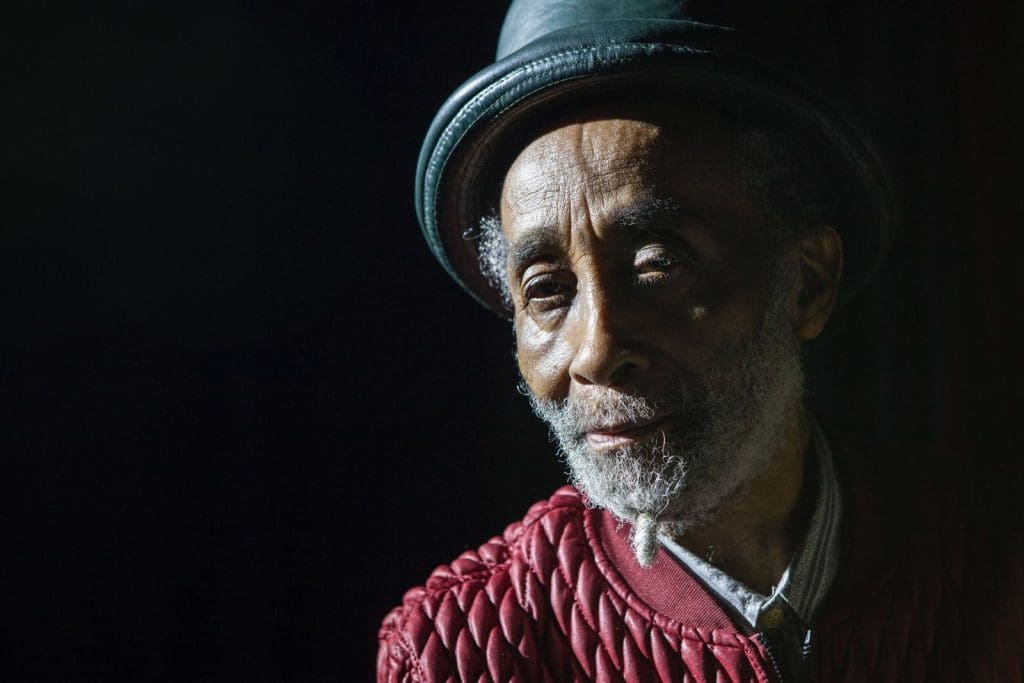
I’d love to know your highlights bringing the Getting It Back story together.
TMC: One does come to mind. It was just a simple shoot of five of the six original band members in a rehearsal room. Just five hours of me hoovering up knowledge, asking questions, and getting the guys to jam. Getting a deeper understanding of what we’re dealing with. And then naturally, Steve started talking about how Bra came to be. He started hitting the iconic bassline, then Sam just followed him on the drums, and then Pablo and Patrick got involved. I got goosebumps watching it come to life in front of me.
PP: The final sequence, for me, with Pablo. It was of course incredibly emotional for all of us, and I just think it was a perfect way to close off. I’m excited for people to see and feel Pablo.
TMC: Patrick actually said to me some time ago that Pablo has his legacy now, on film. He’s still here. That is so important to me. I’m glad people will get to see that.
Getting it back: The Story of Cymande is in select UK cinemas now and available on BFI Blu-ray and BFI Player from 26th February. Cymande are touring Australia, Europe and the UK in 2024. Further details cymandeofficial.com The band’s first two albums have recently been reissued by Partisan Records, their 3rd album Promised Heights is reissued on vinyl on 17th May.





